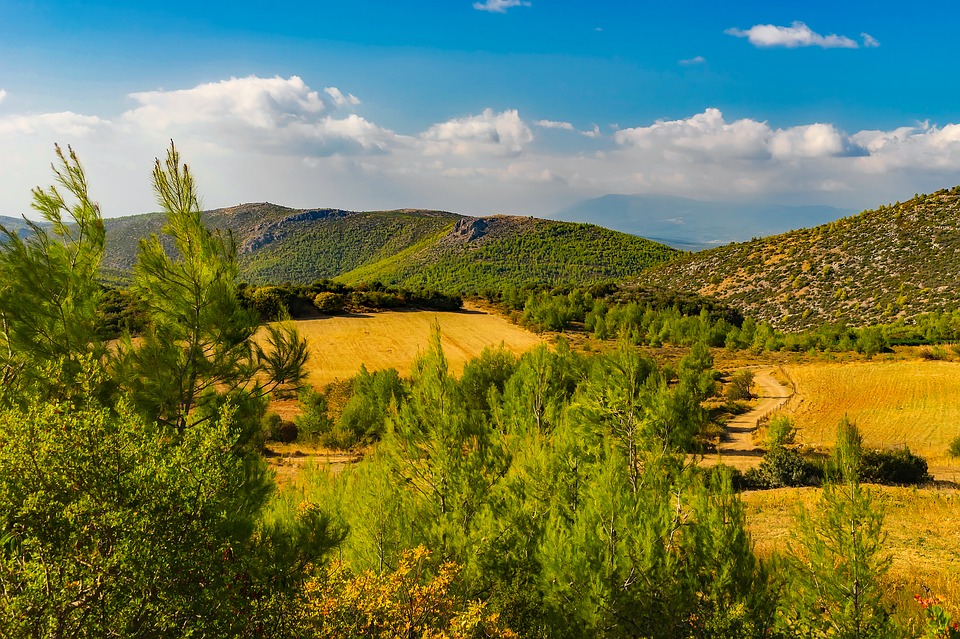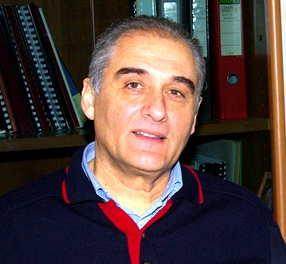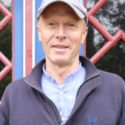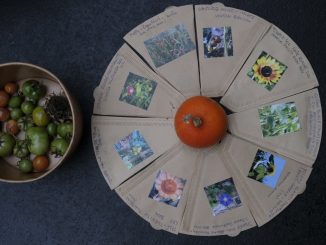Vassileios Bellis is General Director of the DEVELOPMENT AGENCY OF KARDITSA, in Thessalia Greece. He is one of the initiators of a movement of new social enterprises and cooperatives active in the region for many years, including local energy, cooperative banking, rural tourism and many others. Hannes Lorenzen spoke with him ahead of the upcoming European Rural Sustainability Gathering, which runs from 17-21st May 2017.

HL You have been working for many years in the region of Karditsa as consultant, project leader and now as director of the regional development agency. What have been the most important ups and downs of that time for you personally?
VB I feel as a very lucky person! During the last 27 years, working with colleagues in the Development Agency of Karditsa, many visions and plans shared by our people have become reality. This is a very strong and … kind of addictive feeling! Right after its establishment by the local authorities in 1989, the Agency used innovative participatory planning methods and techniques, focusing on the sustainable use of our locally available resources. So the local population, the groups of interest and all the stakeholders had the chance to express their views and actively intervene in the public debate organised for that purpose.
HL Who had the initial energy and trust to make this happen?
VL The women. The women’s cooperative was the first organisation supported by the Agency. It was established in an abandoned mountainous area around lake Plastiras. This is the area where the European Rural Sustainability Gathering will take place in May this year. The women’s cooperative was launched in 1993. A decade later the area had been transformed from an unknown spot into a highly appreciated mountain destination. We all went through very mixed experiences and feelings, especially the members of the women cooperative. Starting from complete isolation and poverty through timid participation in planning, new visions but also many doubts due to the risks related with it. We are very happy about the success of the programs – NOW, LIFE, LEADER – and we will never forget the mutual respect and pride, which have emerged from the women cooperative. Through the years of cooperation among all members of the network and with local authorities, cooperation has gradually become deeper and wider and the emergence of what we call “ecosystem of collaboration” is the result of it. The “ecosystem” accelerates the establishment of new cooperatives and social enterprises, encouraging the citizens to work together.
HL Have there been any setbacks in these years?
VL Setbacks resulted from poor participation of people during the initial phases of planning. However, the real down experience is of course connected with the crisis in the whole country. The crisis has affected negatively all economic and social activities throwing local society into massive unemployment, poverty and insecurity. This has also affected our agency. Our turnover reduced to 1/3 of what it was before the crisis. So the two thirds of well-trained young colleagues stopped their cooperation with the agency. The year 2011 was the worst of our history. Our balance sheet was negative for the first time.
HL The social economy and cooperatives are at the heart of your engagement. In which way can they contribute to overcome the current crisis, especially in the rural parts of Karditsa?
VB One pillar of our local development is investment. The prerequisite for this is capital. Because of the crisis there is not easy access to capital. The systemic banks have not the liquidity to offer loans, the private SMEs are exhausted by the low consumers’ demand and the state has dramatically reduced the program of public investments. So the only way to improve the utilization of local resources is through “collective investment” or through the Social Economy. In this way more people carry the risk and they are not discouraged by the crisis. During the crisis, Social Enterprises organized the main innovative and risky interventions, like the energy cooperative, the stevia cooperative and the super-foods cooperative.

HL Greece currently suffers from a very high rate of unemployment and economic depression. Where do you see the energy and capacities of people to overcome this situation?
VB There is a contradiction in Greece: On one hand there are well-educated young people, able to produce anything covering the humans’ needs, but they are unemployed! On the other hand there are human needs which remain frustrated! There is a structural barrier preventing the solution of the contradiction. This barrier is made by individualistic behaviour and this could destroy social networks based on cooperation, fair sharing and mutual support.
HL You are about to create a new network of local development agencies from across Greece. How are these agencies organised and what do you expect from their activities and cooperation?
VB What we call our “ecosystem of collaborating organisations” is producing impressive results and it is a very good practice. The prerequisite for its establishment and successful function is the existence of a capable organization or a “catalyst” which will offer in a continuous base the necessary support empowering and encouraging the local population to cooperate.
In Greece there are 50 development agencies implementing programs like LEADER or CLLD (Community Led Local Development) -projects covering the whole country. During the last months in the frame of the CLLD planning, an agreement was established among 13 development agencies for the creation of “ecosystem’s support centres” in 13 areas, one in each region of Greece. It is an ambitious project and all the agencies involved have the will to work hard to this direction.

HL Your local bank cooperative has been awarded the title of best bank of Greece. What is the essence of this success and what does the bank contribute to the social economy?
VB Our cooperative bank has been rewarded the title of best bank in Greece. It has the best indexes in all terms. It also has the liquidity to support the local economy. Of course it is a small bank, but it played a very supportive and positive role during the crisis, offering 50% more loans to SMEs as a reflection of the local society’s trust which increased its deposits to the bank more than 70%. When the Credit Cooperative ‘graduated’ from the incubator, it had 1100 members. Today it is transformed into the Cooperative Bank of Karditsa having 7.500 members and a turnover of 80 M€. It is a shareholder of our agency and we cooperate in a microfinance program and in many others. Our cooperative bank has carried out most investments (private or collective) made in Karditsa during the crisis.
HL You will be the host of an international gathering on rural sustainable development in May this year. What do you think you can offer to your guests and what would you ask them to bring to Karditsa?

VB First of all, our guests will have the chance to visit and stay in a Natura 2000 zone with an incomparable beauty, an amazing mountainous destinations in Greece. They will taste local products of high quality and get into a “success story” of rural development through the LEADER program, the participation of local population and the intelligent motivation of private capital. They will have the chance to exchange experience and good practices with members of Social Economy organisations and colleagues from 13 development agencies, working all over Greece. Finally, we will visit successful collective initiatives developed in various economic and social sectors.
We ask our visitors to bring to Karditsa their love and passion for their own home regions and their achievements and practice in order to share it with us!
More
https://www.arc2020.eu/2017/02/yiorgos-psychas-on-crisis-land-access-deep-change/
This year Forum Synergies’ European Rural Sustainability Gathering will take place in Karditsa (region of Thessaly, Greece), from 17-21 May 2017.
The three-day gathering will be an opportunity to meet people with a spirit of cooperation and action for sustainable rural development from across Europe. We will visit highlights of local sustainable initiatives and development action in a region with strong civil society engagement.
Forum Synergies’ rural sustainability gatherings are a lively exchange of practical knowledge and experiences between local actors, social organizations and policy makers from across Europe. During this three-day meetings we bring together people from all walks of life to learn on the spot from each other about sustainable practices in sustainable rural development, civil society activities and urgent topics as access to land, sustainable farming, economic activities and networking.
The gathering will be co-organised with Karditsa Development Agency, in cooperation with Euracademy, Iliosporoi, Peliti and other local and national initiatives






1 Trackback / Pingback
Comments are closed.